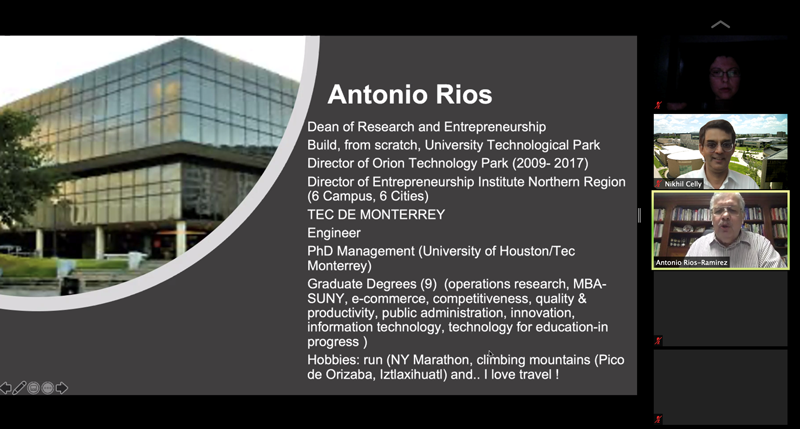A Global Perspective
Bauer International Management Course Hosts Conversation on USMCA Implications
Published on August 11, 2020

One of the benefits of virtual teaching has been the possibility of bringing in guest speakers from across the world, not confined by location, according to a Bauer College faculty member.
Management & Leadership Instructional Assistant Professor Nikhil Celly recently hosted Antonio Rios-Ramirez, director of the Institute of Entrepreneurship, Region North, at the Monterrey Institute of Technology and Higher Education, in his International Management course for a conversation on the implications of the United States-Mexico-Canada Agreement (USMCA).
The agreement, which went into effect on July 1, includes major changes for the automobile industry, along with new policies on labor and environmental standards, intellectual property protections and some digital trade provisions.
On July 1, the United States Mexico Canada Agreement (USMCA) went into effect. It included major changes on the automobile industry, and new policies on labor and environmental standards, intellectual property protections, and some digital trade provisions.
Bringing industry experts into the classroom remains a vital teaching tool, even in the era of COVID-19 and remote learning, Celly said.
“It’s critical for students to hear from international faculty and experts in other countries to appreciate different viewpoints, in this case Mexico’s perspective on the new NAFTA, and how some of the clauses impact industry and society in Mexico,” Celly said. “These perspectives may not otherwise be easily available or obvious to students based on typical U.S. media coverage or readings.”
Rios-Ramirez shared with students a presentation, “From Maquiladora Industry to High Value Industry in Mexico,” elaborating on what the new deal could mean for U.S.-Mexico trade and manufacturing. The longstanding manufacturing process between the two countries has made a substantial shift over the last 30 years in Mexico, he said, going from 90 percent manufacturing to 65 percent manufacturing.
“U.S. companies can be more competitive around the world because of low wages in Mexico and the manufacturing process they can use in Mexico that they don’t have in U.S.,” Rios-Ramirez said.
Within the USMCA, all parties have five years to make substantial changes to their industries, including a $16 hourly wage in the automotive industry in Mexico, which Rios-Ramirez says will create some challenges.
“I would like to say we are prepared, but we need to work a lot. The federal government will need to help us for the next 10 years in terms of skills-based training. Some companies are also working on that in the private sector,” he added. “Northern Mexico is working hard to do that. The high wages will raise the standard of living for automobile workers and some of our brightest talent may be attracted to the automobile sector, but that could also be another challenge.”